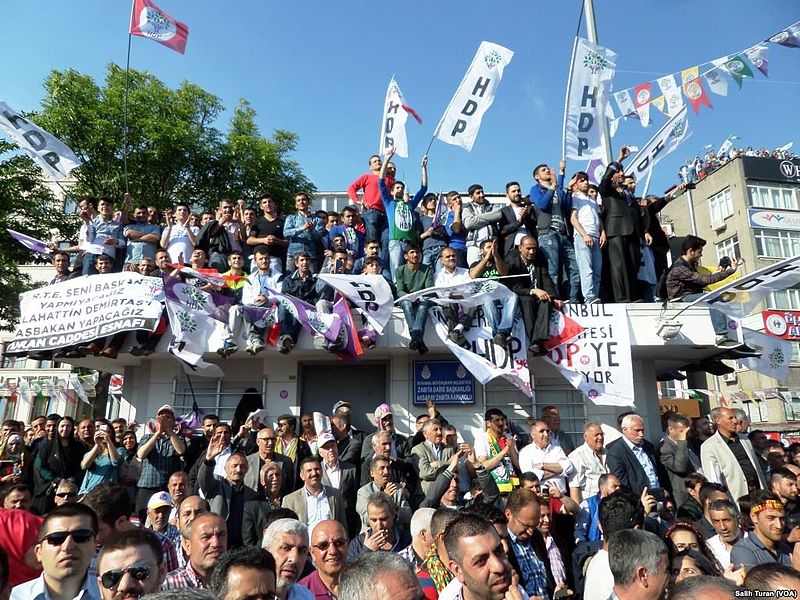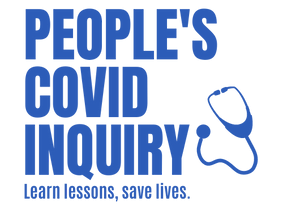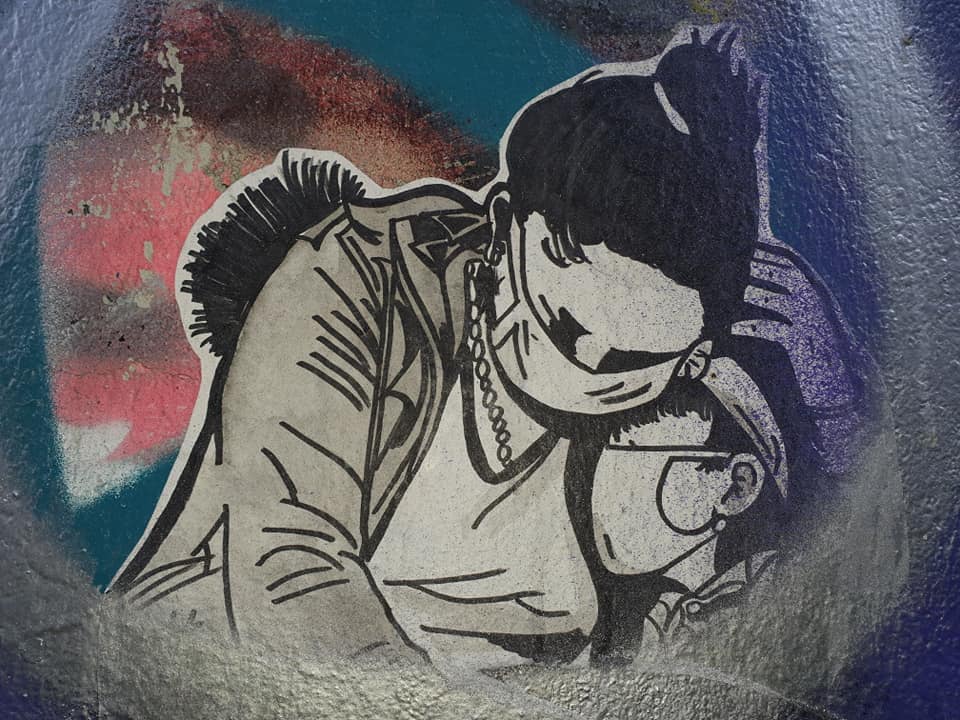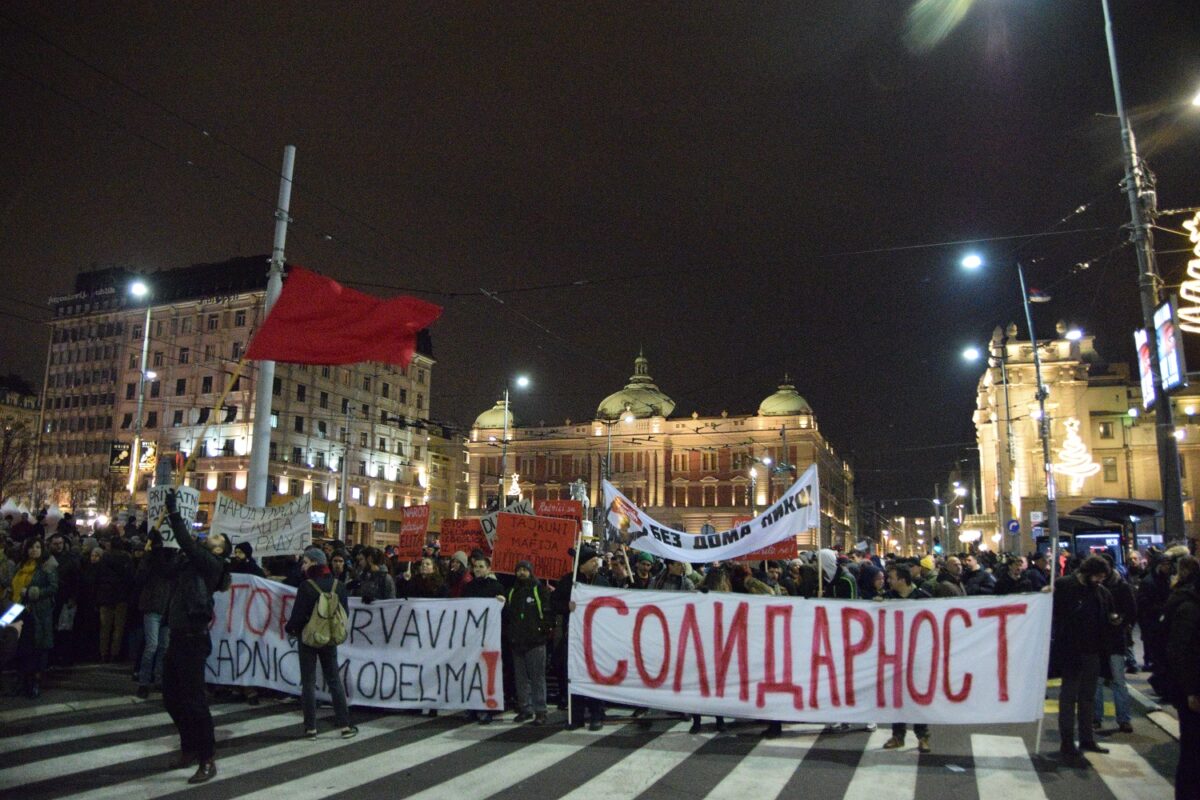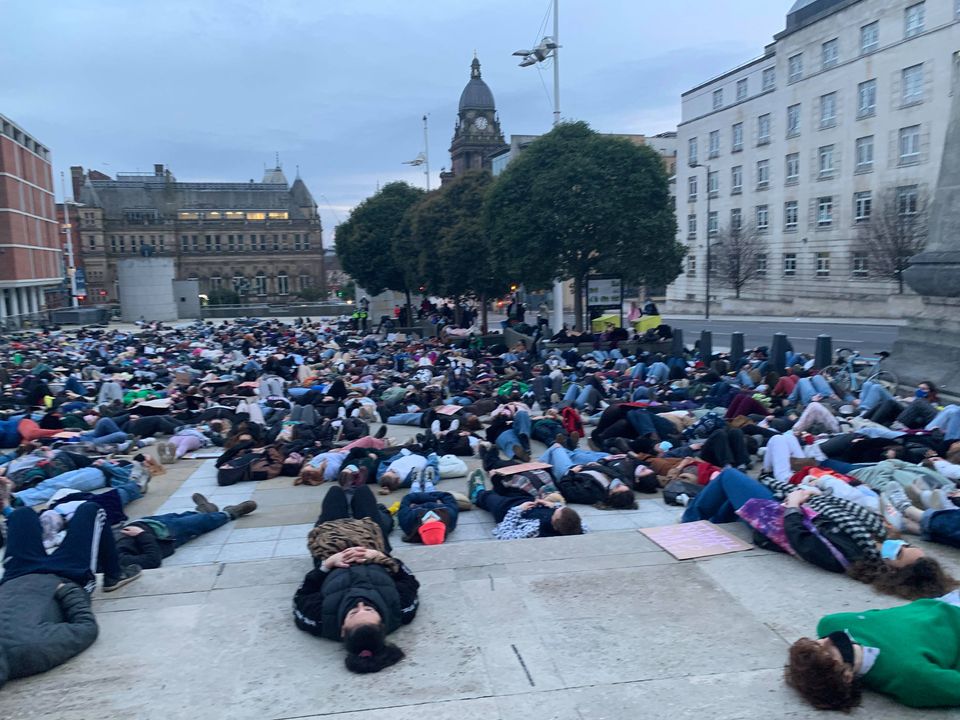BERLIN BULLETIN NO. 187 March 22, 2021
Above all it’s the Covid mess. Seen last spring as a model of swift, effective response, Germany is now torn by controversy, with its sixteen states and dozens of politicians squabbling about when to send which kids (if any) back to school, the 1st, 5th or 9th graders, with or without masks, with or without self-testing. Shopkeepers and restaurant owners protest: “When can we open our doors or at least serve outdoor tables?” But if they can open in April, why can’t hotels do the same? What about the tourist trade? At Easter, but mostly in the summer, huge waves of Germans surge toward the surf at the Baltic and North Sea and the warmer waters (and mostly hotter nightlife) along Mediterranean coasts in Spain, Turkey, the Balearics. What about theater people and musicians, solo or in ensemble? Or the sex workers, also solo or in legal establishments known as “Eros Centers”? All are clamoring for more government funds for survival.
All hopes were based on vaccines, first for old folks and medical staff. But who next? Teachers, cops? Secretive arrangements for vaccine purchases were in turmoil, both financially and medically. Just as Europe seemed to be under control, there were unpleasant rumors about AstraZeneca shots. Then the Minister of Health announced an “All clear, (nearly) all safe.” But some of the unvaccinated masses, skeptical anyway, decided against penetration of their arm muscles.
Some people joined motley groups marching on weekends to claim the whole virus story was phony, aimed at curtailing freedoms, increasing the world power of Bill and Melinda Gates, or compelling world vaccination. Some threw in QAnon accusations or carried rightist flags. Often rejecting legally-required distancing and masks, they occasionally got dragged away and registered by masked (often visored) police. Guesses were on as to where such groups would head politically: right, left, up or down.
A new question arose, hitherto unthinkable: might Germany copy India, Mexico, Hungary, Slovakia and others and resort to Russian vaccines – or even Chinese ones?!
Into this Kuddelmuddel (a nice German word hardly requiring translation) plopped some scandals, nice juicy ones, though without the erotic edges of many in the USA; unless you include the pedophilia cover -up scandals now embarrassing the Catholic Church in Cologne, their malodor defying the fabled eau-de perfumes of that city.
But these scandals, despite their party names, did not rip into the poor church but into its close allies, the Christian Democratic Union (CDU) and its Bavarian sister, the Christian Social Union (CSU). Two legislators’ hands were caught deep in the cookie jar – contracts for supplying anti-virus face masks. It seems that they were moved so deeply by early shortages that they used their business connections, cultivated despite public service in the Bunderstag, to arrange very lucrative deals from friendly producers. Friendly enough for little “Thank you” gestures for the sales – 250,000 euros for Nikolas Löbel, 35, CDU, and 660,000 for Georg Nüsslein, 52, CSU.
Of course, party leaders were “totally shocked” at such nefarious doings, almost inconceivable for members of their double party which has been foremost in running Germany for all these years. They hastened to undo the damage, ejecting the two from their Bundestag seats and demanding that all their colleagues swear in writing – by the following Friday – that they were not involved in any such bribery (at least not in Covid connected business). All of them solemnly signed.
But before the ink had quite dried another CSU man, this time in the state legislature (luckily not again in the Bundestag ), was also caught. Alfred Sauter, 71, once Minister of Justice in Bavaria, was unable to account properly for the handy sum of 1,200,000 million euros – also for overcharged face-masks! As yet unclarified: how much went into his pockets, how much to his party, how much was not paid in taxes. All three gentlemen had to resign from their party and all posts, but will hardly face greater harm than to their reputations – if that.
Scandals were not new to the Federal Republic. But this one had an almost comical side, hitting just days before two important elections, in a year to be studded with elections. Despite almost frantic assurances that only a few “bad apples” had been involved, the CDU got hit hard twice, not only due to the scandals, no doubt, but also to dismay about the Covid mess and growing woes and fears of current and potentially future jobless, moneyless, maybe homeless persons when (and if) the disease has run its course. Then too, in both state elections a key role was played by personalities.
Rheinland-Pfalz (or Rhineland-Palatinate in English) is known for three things. In Mainz, its capital, Johannes Gutenberg printed his famous Bible and initiated printing in Europe. Trier was the birthplace of Karl Marx. And Martin Luther’s epochal refusal to recant, getting the Reformation going against the Catholic Church (thus already under attack way back in 1521) was at a meeting, named for the town, deliciously called the Diet of Worms.
In the March election its present-day celebrity, Malu Dreyer – she’s a Social Democrat – is so well-liked by her constituents, less for party policies than for her friendly, down-to-earth way of chatting with them, that in a race with many participants she won with almost 36%, leaving the once-proud CDU with only 27.6%, their worst result in that state’s history, and affording them five years to digest what might be called a new “diet of worms”. Malu, as she is often called, will almost certainly continue her coalition with the Greens, weak here, and the even more business-friendly Free Democrats. Since their symbol-color is yellow, and Malu’s SPD claims red, this is called a traffic light coalition – red-yellow-green.
In neighboring Baden-Württemberg the leading personality – and only Green premier in Germany – is the elderly Winfried Kretschmann, 72, with bristly white hair and a croaky Swabish-accented speech. On the right edge of his once seemingly radical left, now right-tending Green party, and a close friend of the two auto giants dominating his state, Daimler-Benz and Porsche. Kretschmann’s loud aggressiveness and the relative, auto-based, prosperity in his state got him a 32.7% vote , his party’s best result anywhere. And here too the CDU was handed the worst result in its history (24.1%) in a state it had dominated for decades. In the past 10 years they had been humble junior partners to Kretschmann’s Greens. After this fiasco he might ditch them and form a three-party traffic-light coalition. like Malu in his neighbor state.
Two other election items need mentioning. The good news first: the fascistic Alternative for Germany (AfD), once an expanding menace, remains a threat but a rather reduced one. Rent by factional strife, it skidded downward, missing its 10% goal in both elections with 9.7% (2016: 15.1%) in Rhineland-P. and even less – 8.3% (2016: 12.7%) – in Baden-W.
The bad news: the results for the LINKE were not surprising – but disappointing. A paltry 2.5% in Rheinland-P – even a bit less than five years ago – was hardly balanced in Baden-W by a 3.6% vote – just 0.7% more than five years ago. Both results were far from the 5% needed to gain a single seat in their state legislatures. The national party congress two weeks earlier was unable to give more boost in southwest Germany, where the LINKE has always been weakest. Aside from the rent ceiling law in Berlin and a current attempt per referendum to force big real estate blood-suckers out of that city, the party has not been able as yet to lead any popular struggles or catch many crowds’ imagination. Perhaps the new leadership will have more success.
It is badly needed. Understandably, the Covid pandemic worries people immensely; not only due to the chances of illness or death, but the job and financial troubles awaiting so many. But, earnest as these problems are, they are dwarfed by an overriding, far greater menace about which far too few are concerned – in Germany, the USA, everywhere; the danger of war, even atomic war. How many good souls will be marching two weeks from now in Germany’s traditional Easter peace marches? Maybe more than in recent years, maybe less, but certainly far too few – even though about two-thirds of the population favor a policy of peace with Russia (and China). Many others are undecided or disinterested.
But the belligerent remainder is powerful. It includes those who dream again of Germany’s power and glory, of its “proper place in the sun”, of high returns on African cotton, coffee, cocoa for its good chocolate, for coltan, uranium and gold diggings. Maybe even of once German-owned breweries for “coolies” near naval piers for warships in Tsingtao. And some dream of boots and guns like those which once advanced and blasted to within 19 miles of Moscow’s Red Square.
Others with related goals – the Atlanticists – are closely bound up with strong-arm power people in Washington; the Boltons and Pompeos but also a wolf pack of Democrats, in politics and the media, orating about “our adversaries” and pushing their “freedom” campaigns about election meddling, Navalny, or the Uigurs. It is hard not to think of bad past decades – or not to smell names like Raytheon and Rheinmetall, Lockheed-Martin and Krauss-Maffei!
One can approve of Putin and Xi Jinping or hate them, but their policies must basically be supported or opposed by their own people, especially if we wish the same. Denouncing or attacking them on the international stage can invoke far too many fearful memories, unforgotten in the lands where they were felt: 27 million Soviet citizens, mostly civilians, murdered by those whose descendants now join in calling them “adversaries”. Or 200,000-300,000 mostly civilians massacred in 1937 in Nanking. And many in the world still recall the two to three million killed in North Korea, later in Vietnam, mostly civilians, often with flesh-burning napalm. Or at least half a million who died in Iraq, and over 200,000 in Guatemala after a CIA coup in 1954. They come to mind when “freedom and democracy” are cited as our motivation.
“Navalny sentenced” – “Navalny imprisoned”. The poisoning of this right-wing racist filled the German media with angry articles and editorials. How many have there been about new attempts to rescue Mumia Abu-Jamal, 66, a gifted Black journalist and leftist essayist, locked away since 1981 after a frame-up trial – and now fighting death from prison-induced Covid?
When did the mass media report on another political prisoner, Leonard Peltier, 76, arrested in 1975, acquitted, then framed, repeatedly denied either a fair trial or a pardon. We read and hear so much about the Uigurs, always from clearly one-sided sources. Is there an equivalent amount about more than 2 million Americans behind bars – the world’s record – with Blacks still getting locked up five times as easily and often as whites.
What do media consumers know about the prisoners at Guantanamo, many tortured beyond description, never given trials, some only 14 or 15 when imprisoned, many hopeless suicides. Forty are still encaged there. Injustice is always wrong and should be castigated. But hypocrisy and elastic moral standards can also be dangerous sins.
Many elderly people recall their shock at learning the facts about over 100,000 Japanese women, children and seniors incinerated within minutes in 1945, with others suffering the effects until today. How many feel shock that, also until today, fifteen or twenty US atomic bombs are stored near the small German town of Büchel – next to special German planes ready to speed them eastward. Each bomb has an explosive power four to thirteen times as murderous as the Hiroshima bomb.
In a world pocked with 700 or 800 US bases, from Poland and Estonia to the Ukraine and Okinawa, with US aircraft carriers sailing through the Persian Gulf and the South China Sea, where risky “training maneuvers” face threatened borders, with mistakes or accidents all too common; any talk of asserting “American world leadership against its adversaries” would seem to border on insanity.
Will Biden’s Cabinet heads and generals choose this path? In Germany, will those hoping for peace or at least mutually advantageous business connections, weaken and succumb to those (the loudest, sadly, are often the strengthening Greens) who angrily denounce pipelines or any other peaceful lines, preferring warplanes, tanks and armed drones instead?
Every country is important, but the USA and Germany may well be the most important. That is why the forces of sanity, the pressure on the Biden government and on whichever forces win out in Berlin next fall are so crucially important. In Germany, the LINKE must always play a forceful role (despite some weakening around its edges). It must learn to grow and reach out in popular ways to all those who desire peace. It still has a voice!
With or without masks and vaccines, with a new government in the USA and one in Germany after September, two things will remain important: vigilance and action!
